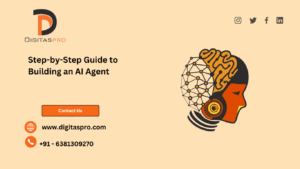Introduction
In 2024, AI continues to revolutionize marketing by optimizing processes, improving personalization, and driving efficiency. The AI marketing industry is projected to grow significantly, offering transformative tools and strategies for businesses.
Key Trends
- Data-Driven Insights:
- AI enhances data analytics, providing deeper insights into customer behavior.
- Predictive analytics helps in forecasting trends and personalizing marketing efforts.
- Content Creation and Personalization:
- Generative AI tools like ChatGPT and Jasper enable the creation of high-quality, personalized content at scale.
- AI-driven personalization improves user experience and engagement by delivering relevant content based on individual preferences.
- Audience Segmentation:
- AI refines audience segmentation, allowing marketers to target specific demographics with precision.
- This leads to more effective campaigns and higher conversion rates.
- Programmatic Advertising:
- AI automates the buying and placement of ads, optimizing ad spend and targeting the right audience.
- Real-time bidding and dynamic creative optimization enhance the effectiveness of advertising campaigns.
- SEO and Voice Search Optimization:
- AI tools improve search engine optimization (SEO) by analyzing search patterns and optimizing content accordingly.
- With the rise of voice search, AI helps in creating content tailored for voice-activated devices.
Challenges and Solutions
- Data Security:
- Ensuring the security of customer data is paramount.
- Implementing robust encryption methods and adhering to data protection regulations are essential.
- Regulatory Compliance:
- Navigating the evolving landscape of data privacy laws is challenging.
- Marketers must stay informed and compliant with regulations such as GDPR and CCPA.
- Cost of Implementation:
- High initial costs can be a barrier for small businesses.
- Investing in scalable AI solutions and leveraging cloud-based services can mitigate costs.
- Skills Gap:
- There is a growing need for marketers skilled in AI and data analytics.
- Continuous learning and collaboration with AI experts are crucial for bridging the skills gap.
- Ethical Considerations:
- Ethical AI use involves transparency, accountability, and respect for user privacy.
- Developing ethical guidelines and fostering a culture of responsible AI use is necessary.
Case Studies
- Personalized Email Campaigns:
- Companies using AI to analyze customer data and personalize email content see higher open and conversion rates.
- AI tools segment audiences and tailor messages based on past interactions and preferences.
- Dynamic Pricing Models:
- E-commerce platforms leverage AI to adjust prices in real-time based on demand, competitor pricing, and customer behavior.
- This approach maximizes revenue and improves customer satisfaction.
- Customer Service Automation:
- Advanced AI chatbots handle customer queries efficiently, providing instant support and reducing response times.
- These chatbots are integrated with CRM systems, offering personalized assistance based on customer history.
- Content Generation:
- Media companies use generative AI to create news articles, social media posts, and marketing copy.
- AI-generated content maintains a high standard of quality and is produced at a fraction of the time compared to traditional methods.
Future Outlook
The future of AI in marketing looks promising, with continuous advancements expected in AI capabilities. Marketers will increasingly rely on AI to drive innovation, enhance customer experiences, and stay competitive. Embracing AI responsibly and ethically will be key to harnessing its full potential.


